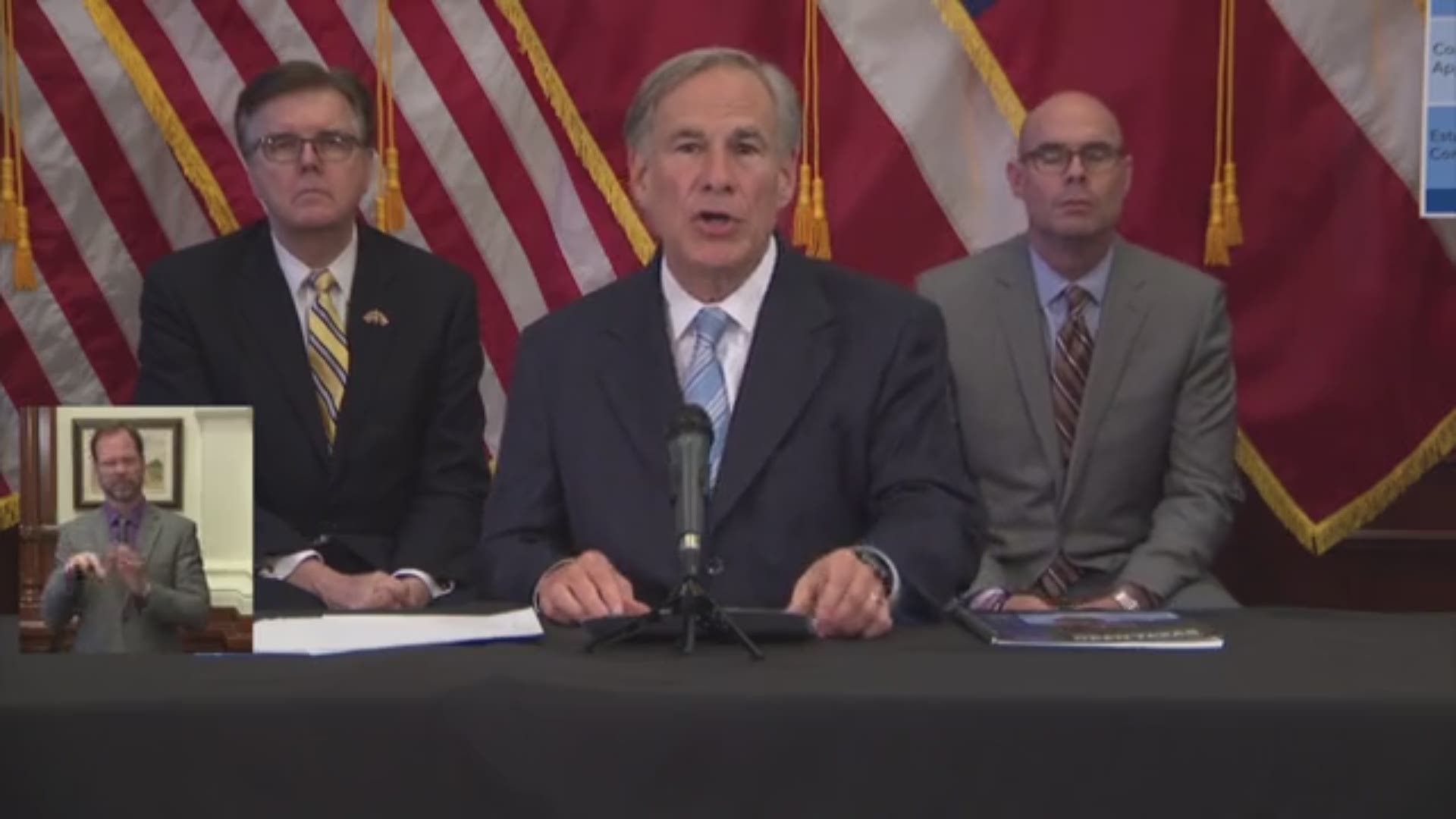AUSTIN, Texas — Religious services are considered an essential service under orders issued Monday by Gov. Greg Abbott. As part of his announcement, Abbott released new recommendations for how houses of worship should hold services moving forward.
Abbott encouraged religious leaders to take their role in stopping the spread of the novel coronavirus seriously.
First of all, Abbott says, churches and other religions should try to hold any services and activities remotely whenever possible.
If services are conducted in person, the governor's office released minimum health protocols that should be observed and remember safe-distancing practices. These protocols also apply to funerals, burials and memorials.
Additionally, churches could offer drive-in or drive-thru style services as a way to minimize contact between attendees, employees and volunteers.
Health protocols for during a service
The guidance from the governor focused on protecting the most vulnerable populations -- those 65 or older or with health conditions that place them at higher risk -- by encouraging them to stay home.
If remote access isn't possible, places of worship are encouraged to designate a separate area or hold a separate service for the at-risk population.
Additionally, places of worship should continue to observe social distancing guidelines from the CDC. This means, only allowing people from the same households to sit together and having everyone else sit with at least two seats open between them.
Finally, every other row should also be kept empty to allow proper spacing in front and behind people.
Health protocols for employees and volunteers
The state advises churches should screen and train employees and volunteers.
Any employee or volunteer should be checked for symptoms prior to entering a building.
Symptoms of COVID-19 include:
- A cough
- Shortness of breath or difficulty breath
- Chills
- Repeated shaking with chills
- Muscle pain
- A headache
- A sore throat
- Loss of taste or smell
- Diarrhea
- A fever of 100 degrees or more
Additionally anyone who has been in contact with a confirmed COVID-19 case should not enter.
If someone has had symptoms, whether they are confirmed as having the novel coronavirus or not, they should not return until after their fever has subsided for three days without medication, their respiratory symptoms have improved, and it has been at least seven days since they first exhibited symptoms.
Anyone who is a confirmed case of COVID-19 or who has been in contact with a confirmed case should wait to return after a 14-day quarantine period, state officials say.
Employees or volunteers should be trained in how to properly clean and disinfect, wash their hands, wear a face covering over their nose and mouth.
Health protocols for facilities
Places of worship should clean and disinfect a number of surfaces, including those frequently touched such as door handles, seats between services, and any items that come in contact with attendees.
Officials say churches should offer disinfectants, such as hand sanitizer, wipes, or soap and water. They should also display signs with reminders of best hygiene practices.
Additionally, any food offered to employees, volunteers or attendees should be individually packed.

